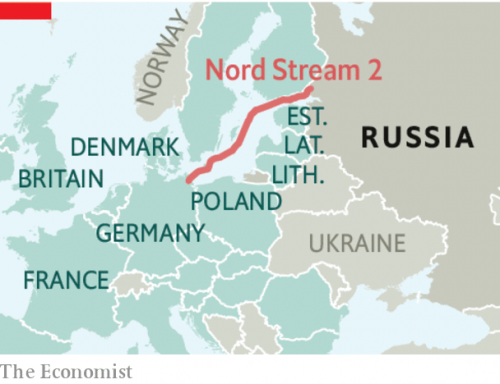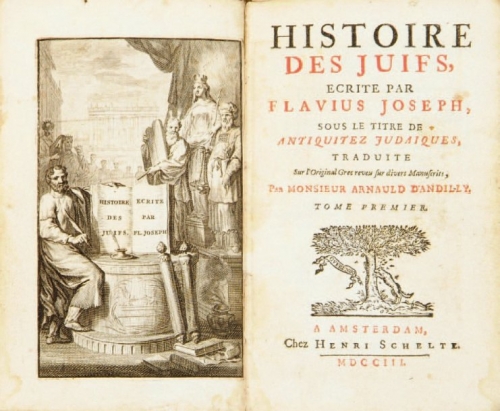If we are talking about geopolitics, we must apply an integrated an complex approach that combines power (primarily hard power - military strength and economic) and a certain view on the territory issues. The key concepts in geopolitics are Land Power, Sea Power and Manpower. The first two categories relate to geographical determinism and people are more likely to adjust and adapt to environmental conditions, trying to extract from this rational use - mountains, deserts, rivers and seas can serve both as natural boundaries and as a source of well-being. Man Power refers to the field of pure politics - the human will can determine how to develop the territory, whether to use military force, what to do for development and strengthening the national economy, as well as what ideological factors can serve - religions and other forms collective identity, such as nationalism.
In this article, we will look at geopolitical factors, including those numerous drivers that push the centripetal and centrifugal forces of the region. Also we will analyze the perception of South Asia from three positions. To do this, it will be necessary to understand the interests of not only the countries of the region, but also others global players. And Russia's interests cannot be understood without Western opposition, especially in the context of current international relations.
At the same time, we must take into account global geopolitical turbulence and the tectonic shift from a unipolar to a multipolar world order.
Global positioning of the region
There are different definitions of South Asia. Some refer to this region as the territories that were previously controlled British empire. According to the most common version, South Asia includes eight States: Afghanistan, Bangladesh, Bhutan, India, Maldives, Nepal, Pakistan and Sri Lanka.
If we consider the region from a global position, South Asia is the Rimland zone - the coastal zone of Eurasia, characterized by active dynamics, which is confirmed by the historical facts of the presence of the centers of ancient civilizations, trade and migration routes, as well as the banality that more than 70% of the World's population lives off the banks of rivers, seas and oceans.
The history of the last two centuries shows that this Rimland has become a place of intense pressure from Sea Powers -early Britain, then the United States. The logic of Land Power forced the Russian Empire, and then the Soviet Union to respond in a manner based on instruments of deterrence and then ideology.
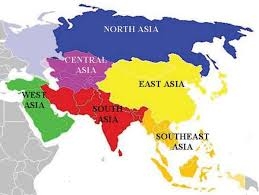 If the US had once followed the doctrine of Henry Kissinger's rollback and used the myth of the Communist threat, now Washington has a more difficult time justifying its presence in the region. In addition, Russia is separated from these countries by a buffer of the independent states of Central Asia. Although the political reality has changed, the geopolitical logic remains the same.
If the US had once followed the doctrine of Henry Kissinger's rollback and used the myth of the Communist threat, now Washington has a more difficult time justifying its presence in the region. In addition, Russia is separated from these countries by a buffer of the independent states of Central Asia. Although the political reality has changed, the geopolitical logic remains the same.
Russia-Heartland is interested in integration processes, while Sea Power, represented by the United States, is interested in controlling the coastal zone.
This is evident from a number of strategic documents. If you have previously under the administration of Barack Obama, the focus was in the South-East Asia and the creation of the Pacific pivot was announced, a new model of the Indo-Pacific region was emerged just now.
Geopolitics of the region
It is obvious that according to its geopolitical characteristics and significance, there are three most important States, which are in the Heartland of South Asia. These are Afghanistan, Pakistan and India. The rest of the countries serve as a kind of buffer and objective reasons can not have a fundamental impact on the geopolitical processes in the region. The role and status of the other five States are limited, they fall into the sphere of influence of other actors, although they can act as significant subjects. So, for example, Sri Lanka has become an important element in China's "Strings of Pearl" strategy.
If we use the terminology of Zbigniew Brzezinski, proposed in his work "The Great Chessboard", on the regional scale Afghanistan, Pakistan and India are active geopolitical actors, while Bangladesh, Nepal, Bhutan, Maldives and Sri Lanka as geopolitical centers with varying degrees of importance. Afghanistan we attributed to the actors because of the strategic instability of this state and the influence it has had on the policy of Eurasia for the last 35 years. In some sense, it is negative geo-political actor.
In South Asia context itself, regionalism may be analyzed from different contexts i.e. positive and negative.
It should also be borne in mind that with the exception of Sri Lanka and the Maldives, whose borders are natural due to their island situation, the remaining six states' borders are the result of the intervention of the British Empire and the consequences of the colonial policy of London, which is still felt to varying degrees throughout South Asia.
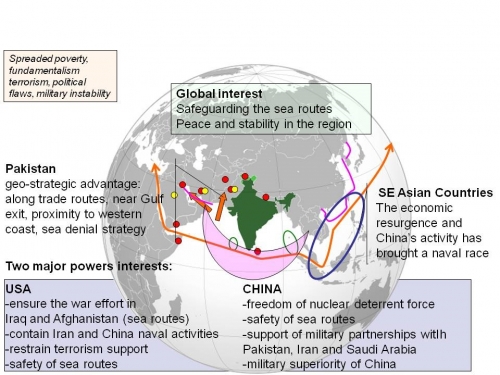
This has created the effect of grey zones and hybrid borders, which are characterized by a high degree of political tension. A number of states have certain vulnerabilities in the form of hotbeds of instability, which can be classified as gray zones.
The disputed territory is Kashmir. In addition, India has a disputed territory with the People's Republic of China. Killings of Bangladeshi citizens by Indian border guards on the Bangladesh-India border are facts not often reported in the international press, but are indicative of the characteristics of Indo-Bangladeshi relations. In India itself there is a threat from the Maoist Naxalites in the North-Eastern States. The Western States of India may be subject to manipulation from radical Islamists. However, the growth of Indian hindutva nationalism also provokes instability.
In general, most countries in South Asia are characterized by domestic political problems associated with threats of terrorism and separatism.
There is regional entity presented by interstate organization - The South Asian Association for Regional Cooperation or SAARC that was established on December 8, 1985. However, we see that many initiatives within this organization are still at the stage of organizational decisions. It is also important, that this platform can serve as a venue for a regional polylogue, including a discussion of various critical issues.
The theory of the three worlds
For an adequate understanding of the processes taking place in South Asia, it is necessary to take into account not only the political contradictions and tensions between the countries of the region, but also the view from the outside. Therefore, we will inevitably come to the need to consider South Asia from three positions. There is a well-known concept of the three worlds. The first world is represented by industrialized countries.
The second world are countries in the process of technological development. The third world is represented by countries that have yet to go the way of development. This theory represents the Western point of view and has a certain element of racism to it.
In our case the three worlds are three perceptions of South Asia - from South Asia itself, from Russia (as we consider Russia's interests in region) and the United States, as this state still claims to be a global hegemon and openly declares persecution its objectives in Asia, some of which are clearly contrary to the development strategies of a number of States in the region.
Conflict of interest is clear in the frame of US strategy and interests, but it is covered by specific bilateral policies and the general diplomacy of the State Dept. The United States has traditionally been interested in maintaining the conflict potential between countries in order to face different sides and depending on the situation to take one side or another. Ex Secretary of Defence Ash Carter in the context of American strategy for Asia noted that "The heart of that policy is a mesh of political, diplomatic, economic, and military relationships with many nations that has sustained security and underwritten an extraordinary leap in economic development."
His idea is to establish kind of network for Asia. "Important to see these relationships as an informal network — not an alliance, not a treaty, not a bloc" - wrote Carter in his “Reflections on American Grand Strategy in Asia.” In his opinion "The network structure suits Asia."
It is significant that in this speculative network structure, he deliberately introduces an enemy element. At least China is represented as a kind of power that not only opposes American interests in the whole region, but also conducts activities, undermining the sovereignty of other States.
“Maritime and cyber activities are two forms of Chinese aggression that cause concern in the states of the Pacific network, which deepens China’s self-isolation. China’s actions in the South China Sea are a direct challenge to peace and stability in the Pacific”.
It is important to note that Carter mentions China not only as a military-political actor, but also as an economic power.
“The China-proposed network would include such initiatives as the Asian Infrastructure Investment Bank (IAAB) and One Belt, One Road (OBOR)—both of which would be detrimental to U.S. interests. The IAAB,a potential rival to the World Bank and International Monetary Fund, would not match the high standards of the WB and IMF in relation to governance, environmental, and other safeguards—and OBOR is likely to extend China’s political influence more than it extends actual property”.
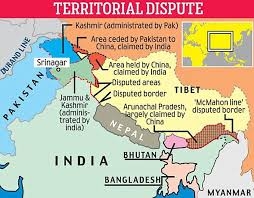
India, on the contrary, is described as a potential ally of the United States, and therefore as a kind of proxy power, able to be a conductor for Washington's interests in the region.
“India is another example of how the strategic benefits of the principled, inclusive network can overcome hesitation. Once deeply skeptical of U.S. influence in South Asia, India became a more active participant in regional security during my two years as Secretary of Defense than at any time in its history”.
It is possible that Carter's position reflects the political instability throughout Asia, described by Robert Kaplan more than 20 years ago?
"The future map - in a sense, the 'last map' - will be a constantly changing representation of the cartographic chaos, in some areas favorable or even productive, and in some violent... This card will be all less and less applied by the rules that diplomats and other political elites have been ordering for centuries. Decisions will mainly come from within the cultures themselves, exposed to those decisions."
But this instability is a special feature - it is neither anarchic chaos, or geopolitical tabula rasa. Rather, these are new opportunities that are associated with global changes, but have their own characteristics of a deep nature. Russia's view of South Asia will be discussed in the relevant section on strategies. Now we have to ask - does Asia look at itself with Asian eyes?
It is obvious that in South Asia to a greater or lesser extent in different countries there is a problem of colonization of consciousness, although all States are formally sovereign. These questions often become the subject of Subaltern Studies in European and American Universities.
And "the formation of different disciplines, including production of Western Orientalist scholarship on Asia was directly or indirectly related to the patterns of domination of Asia. The disciplinarisation and systematisation of human knowledge was a part of the project of modernity." The attempt of South Asian States to build themselves under the model of Western institutions - hence, for example, the well-known aphorism that India is the largest democracy in the world, although it is not because of the actual caste system - and statements by the officials of Asian countries regarding common interests and values thus look pretty paradoxical.
Interests and values
Now we need to decide on a taxonomy related to interests. The point is that the concept of interests in politics can differ depending on which school of international relations is taken as a pattern. In realism, the state it is perceived as a rational subject that acts like a human being and is guided by common sense. However, since Thucydides, we know that human behavior itself is irrational, especially when decisions are made under the influence of anger, greed and ambition. Machiavelli, who is considered one of the harbingers of realism introduced a division of ethics and politics, justifying any kind of action if it leads to the desired goal.
At the liberal school of international relations “achieving peace” is spoken of as a kind of imperative. In practice, as we know, it turns into wars and interventions.
A kind of marker is the Democratic and Republican parties in the United States. The Democratic party tends to gravitate toward the liberal school, while the Republicans adhere more to realism. At the same time, both theories are Western in origin and they are considered to be standards for international relations at the global level.

In addition, the structures of States differ in substance. In the US, there is a model of iron triangles when lobby groups can actively influence international processes. An example is the decision to invade Iraq in 2003, when neoconservatives controlled the military-political apparatus of the presidential administration. Lobby groups of influence may include both ideological structures and commercial ones, for example, transnational corporations. And in Pakistan and Russia are other socio-political models, which are rooted in centuries-old traditions. So even if we try to withdraw some of the formula of net interests (for example, quotas for the supply of some goods or services, the size of duties, admission to the market a certain number of companies) - it will be almost impossible to do.
Another reason is the different sizes of state economies and the availability of priority sectors in the industry. Russia is among the leaders of the countries exporting gas and oil. Pakistan has its own economic priorities, India has its own as well.
However, in addition to interests, there are always values. Interests can be negotiated, values represent a static phenomenon that are not negotiable. Of course, values can be eroded or deeply influenced by exogenous impact. And with modern technologies of social engineering in certain conditions, the change of value orientations can happen very quickly, especially if charismatic public opinion leaders from the local environment are involved. On the example of Ukraine we can see how with the help of external influence values were restructured by socially-political processes and changed the identity of the Ukrainian people.
Values also include the phenomenon of nationalism, which differs from country to country and from region to region. South Asian nationalism, as Sayantan Dasgupta aptly puts it, is ‘monstrous,’ with much of the discourse surrounding it tending to further stoke the conflict between the notion of nationalism as empowerment and as an exercise of homogenization. Languages of power and struggle for belonging through language are most acute in South Asia. When fragmentation is possible to detect such details as, for example, the description of the Taliban as a "nationalist Islamist insurgency, who, for his own purposes, feeds and manipulates tribal imbalances and rivalries."
However, on the scale of the value system it is possible to consider whether the interests of one country can be interfaced with the interests of another country. It seems to me that representatives of the two States will be able to reach an agreement with each other faster if their countries have traditional family values. But if one country has a patriarchal system and another country has legalized same-sex marriage and political feminism is a fashion trend, it will be harder to do so.

Strategies of Russia in general and in relation to Asia in particular
It is important to understand that there is no clear definition of Russia's actions in the international arena. On the one hand, there are a number of documents, related to national security and foreign policy. But they are more likely to wear desirable and recommendatory character. A number of provisions that are spelled out in these strategies, despite their important nature, have never been realised. For example, in the national security doctrine of 2008, it was said that Russia has the right to apply its armed forces abroad to protect its citizens. But the case of Ukraine has shown that this item has not found its applications, although there were numerous facts indicating the possibility of its implementation.
A number of existing strategies also have some aspects that are difficult to put into practice. In other words: the desire and reality are different. However, a number of excerpts from these documents are needed to show the general trends and some limitations in the strategic thinking of the persons who made up these doctrines.
We will cover only those items that relate to the region under consideration or reflect the attitude towards the international community.
In The Foreign Policy Concept of the Russian Federation (approved by President of the Russian Federation Vladimir Putin on November 30, 2016)we see several points connecting with Asian issues.
79. Russia attaches importance to further strengthening the SCO’s role in regional and global affairs and expanding its membership, and stands for increasing the SCO’s political and economic potential, and implementing practical measures within its framework to consolidate mutual trust and partnership in Central Asia, as well as promoting cooperation with the SCO member States, observes and dialogue partners.
80. Russia seeks to reinforce a comprehensive long-term dialogue partnership with the Association of Southeast Asian Nations (ASEAN) and achieve a strategic partnership. Efforts in this area will be supported by expanded cooperation within such frameworks as the East Asia Summit, which provides a platform for strategic dialogue between country leaders on conceptual issues related to the development of the Asia-Pacific Region, the ASEAN Regional Forum and ASEAN Defence Ministers’ meeting with the dialogue partners.
81. Russia promotes broad mutually beneficial economic cooperation in the Asia-Pacific Region, which includes the opportunities offered by the Asia-Pacific Economic Cooperation forum.
82. Russia is committed to establishing a common, open and non-discriminatory economic partnership and joint development space for ASEAN, SCO and EAEU members with a view to ensuring that integration processes in Asia-Pacific and Eurasia are complementary.
83. Russia views the Asia-Europe Meeting and Conference on Interaction and Confidence-Building Measures in Asia as relevant mechanisms for developing multi-faceted practical cooperation with the Asia-Pacific States and intends to take an active part in these frameworks. But Afghanistan and Pakistan are mentioned rather in negative context.
97. The persisting instability in the Islamic Republic of Afghanistan after the withdrawal of all but a few international contingents poses a major security threat to Russia and other members of the CIS. The Russian Federation, together with the Islamic Republic of Afghanistan, other interested states relying on the possibilities offered by the UN, CIS, CSTO, SCO and other international organizations will be consistent in its efforts to resolve as soon as possible the problems this country is facing, while respecting the rights and legitimate interests of all ethnic groups living in its territory so that it can enter post-conflict recovery as a sovereign, peaceful, neutral state with a sustainable economy and political system. Implementing comprehensive measures to mitigate the terrorist threat emanating from Afghanistan against other states, including neighbouring countries, as well as eliminate or substantially reduce the illicit production and trafficking of narcotic drugs is an integral part of these efforts. Russia is committed to further intensifying UN-led international efforts aimed at helping the Islamic Republic of Afghanistan and its neighbouring states counter these challenges.
And point 15 is about global security and threats: The global terrorist threat has reached a new high with the emergence of the Islamic State international terrorist organization and similar groups that have descended to an unprecedented level of cruelty in their violence. They aspire to create their own state and seek to consolidate their influence on a territory stretching from the shores of the Atlantic Ocean to Pakistan. The main effort in combating terrorism should be aimed at creating a broad international counter-terrorist coalition with a solid legal foundation, one that is based on effective and consistent inter-state cooperation without any political considerations or double standards, above all to prevent terrorism and extremism and counter the spread of radical ideas.
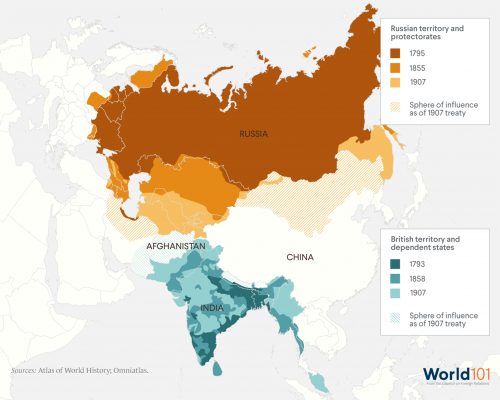
Next, consider the presidential Decree of 31.12.2015 N 683 "On the national security Strategy of the Russian Federation." First of all, it should be pointed out that "as a Central element of the system of international relations, Russia sees the United Nations and its Security Council".
It has a number of items on the South Asian region.
88. Russian Federation increases cooperation with BRICS partners (Brazil, Russia, India, China, South Africa), RIC (Russia, India, China), Shanghai cooperation organization, Asia-Pacific economic cooperation forum, the G20 and other international institutions.
92. The Russian Federation attaches great importance to building the political and economic potential of the Shanghai organization of cooperation, stimulation within its framework of practical measures, contributing to the strengthening of mutual trust and partnerships in Central Asia, as well as the development of cooperation with member States, observers and partners.
Organizations, including in the form of dialogue and cooperation on a bilateral basis. Special attention is paid to the work with countries wishing to join the Organization as full members.
93. The Russian Federation is developing comprehensive partnership and strategic cooperation with The People's Republic of China, considering them as a key factor in maintaining global and regional stability.
94. The Russian Federation attaches great importance to the privileged strategic partnership with the Republic of India.
95. The Russian Federation supports the establishment of reliable mechanisms in the Asia-Pacific region to ensure regional stability and security on a non-bloc basis, improving the effectiveness of political and economic cooperation with the countries of the region, expansion of cooperation in the field of science, education and culture, including in the framework of regional integration structures. Next is economic security Strategy of the Russian Federation for the period up to 2030 (Decree of the President of the Russian Federation of 13.05.2017. № 208).
- building an international legal system that meets the national interests of the Russian Federation economic relations, prevention of its fragmentation, weakening or selective application;
- expansion of partnership and integration relations within the framework of the Commonwealth of Independent States,
The Eurasian economic Union, BRICS (Brazil, Russia, India, China, South Africa), Shanghai cooperation organization and other intergovernmental organizations; creation of regional and TRANS-regional integration associations in compliance with national interests of Russian Federation;
Next is the foreign economic strategy of the Russian Federation till 2020, prepared by the Ministry of Economic Development of the Russian Federation, issued in December 2008.
In the block devoted to Asia from South Asia only India is specified.
It is noted that Russian non-primary goods and services, including high-tech products, are traditionally in demand on the Indian market.
This creates opportunities for increasing supplies of the existing range of exports, as well as for diversification of the structure of trade. The main objectives are to expand Russia's access to Indian markets and joint technology development in selected areas.
It is worth mentioning Doctrine of Information Security of the Russian Federation (Approved by Decree of the President of the Russian Federation No. 646 of December 5, 2016).
28. A strategic objective of information security in the field of strategic stability and equal strategic partnership is to create a sustainable system of conflict-free inter-State relations in the information space.
29. The main thrusts of ensuring information security in the field of strategic stability and equal strategic partnership are the following:
- protecting the sovereignty of the Russian Federation in information space through nationally-owned and independent policy to pursue its national interests in the information sphere;
- taking part in establishing an international information security system capable of effectively countering the use of information technologies for military and political purposes that are contrary to international law, or for terrorist, extremist, criminal or other illegal purposes;
- creating international legal mechanisms taking into account the specific nature of information technologies and intended to prevent and settle conflicts between States in information space; promoting in international organizations the position of the Russian Federation advocating equitable and mutually beneficial cooperation of all interested parties in information sphere.
The fog and friction of diplomacy
At the same time, the actions and even intentions of Russia are often misunderstood and used by other parties to promote their own interest. For example, Hillary Clinton while working as Secretary of state after Vladimir Putin announced the creation of the Eurasian Economic Union in 2011 (it would be more correct to say the reform of the Customs Union), she said that Moscow will create the Soviet Union-2.
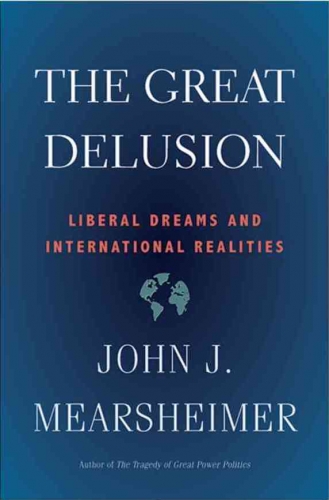 Thus, the situation with regard to Ukraine and Russia's actions on the one hand, and the West on the other, describes well John J. Mearsheimer opinion, who pointed to the guilt of the West in the Ukrainian crisis.
Thus, the situation with regard to Ukraine and Russia's actions on the one hand, and the West on the other, describes well John J. Mearsheimer opinion, who pointed to the guilt of the West in the Ukrainian crisis.
“The United States and its European allies share most of the responsibility for the crisis. The taproot of the trouble is the enlargement of NATO, the central element of a larger strategy to move Ukraine out of Russia’s orbit and integrate it into the West. At the same time, the EU’s expansion eastward and the West’s backing of the pro-democracy movement in Ukraine -- beginning with the Orange Revolution in 2004 - were critical elements, too.
The West’s triple package of policies - NATO enlargement, EU expansion, and democracy promotion -- added fuel to a fire waiting to ignite.
This is Geopolitics 101: great powers are always sensitive to potential threats near their home territory. After all, the United States does not tolerate distant great powers deploying military forces anywhere in the Western Hemisphere, much less on its borders”.
Emma Ashford also on the same side with John J. Mearsheimer, and noted that “today’s confrontational rhetoric and policies toward Russia often ignore reality and highlight the need for an alternative approach”.
And Stephen Kotkin argues that “Russia today is not a revolutionary power threatening to overthrow the international order. Moscow operates within a familiar great-power school of international relations, one that prioritizes room for maneuver over morality and assumes the inevitability of conflict, the supremacy of hard power, and the cynicism of others’ motives. In certain places and on certain issues, Russia has the ability to thwart U.S. interests, but it does not even remotely approach the scale of the threat posed by the Soviet Union, so there is no need to respond to it with a new Cold War”.
Realpolitik and Russia's actions
As we can see from the official documents, India is given priority among the countries of the region. In practice, we also see close cooperation between Russia and India, especially in the sphere of arms supplies (70% of the arms in India are Soviet and Russian origin). Because of the traditional Indian-Pakistani confrontation and by virtue of the fact that during the cold war Pakistan belonged to the number of geopolitical opponents of the USSR, the Russian Federation's relations with this country have not received the same scale of development and do not have the same traditions of relations like Russia has with India. Despite this, the basis for mutually beneficial relations in trade is stable - there are economic, energy and investment spheres between Russia and Pakistan.
From the geopolitical point of view, the North-Western regional segment, including Pakistan, is the most significant for Russia. Afghanistan and leading to Central Asia is a region that is particularly important for Russia, bordering Siberia and the Ural-Volga region.
Basic Russian prospects are seen in strategic cooperation with India, trade and economic cooperation with others states in the region. Potential risks are due to the likely destabilization of the situation in the North-West of South Asia, capable of "spread" to the Central Asian republics.
There is also a kind of risk associated with the aggravation of relations between India and Pakistan, in the extreme case, a military confrontation including the use of nuclear weapons.
Another threatening area for the region from the Russian point of view is humanitarian and environmental. For the moment refugees from Afghanistan, Pakistan or India have had no impact on Russian domestic policy, but on the international scale Russia always pays attention to this problem. In addition to natural disasters and cataclysms, including here the problem of piracy in the Northern Indian ocean.
Earlier it was predicted that in order to reduce regional tensions and balance its policies in South Asia, Russia, obviously, will strengthen economic cooperation with Pakistan, and will help it, in particular, in the construction of the gas pipeline from Iran and Turkmenistan, as well as providing assistance in organizing electricity supplies from Tajikistan and Kyrgyzstan to Afghanistan and Pakistan.

After the launch of the Rogun hydroelectric power plant in Tajikistan in November 2018, this interaction is now close to practical embodiment. It has not excluded the implementation of other cooperation projects, in particular, through industry, as well as cooperation in security sphere with the growing use of the potential of SCO (Shanghai cooperation organization) and the "Dushanbe four" (Russia, Tajikistan, Afghanistan, Pakistan).
Russian experience as mediator for water sharing between Central Asian countries may be utilized in South Asia too because of violating the Indus Water Treaty by India as well as problem with water flows after heavy rains from India into Bangladesh.
As for Pakistan, according to Russian experts, despite certain developments in the country such as higher education, including technical education, Pakistan, unlike India, has not found a high-tech niche in the world division of labour. Demand for the services of scientists, engineers and technicians comes mainly from the military-industrial, and especially the nuclear missile complex.
This gap may be filled with Russian assistance too. The sale of weapons systems by Russia to South Asian States illustrates well the level of interaction between the countries. The Rosoboronexport company cooperates with four States, i.e. half of the countries of South Asia. India since 1947, Pakistan since 1948, Sri Lanka since 1957 and Bangladesh since 1972. It is significant that Rosoboronexport makes no sales to the States, which pursues a hostile policy towards Russia.
Russia is interested in enhancing the strategic capacity of such organizations as SCO and The Conference on Interaction and Confidence-Building Measures in Asia to form a new security architecture for Greater Eurasia. This approach is directly linked to the realization of the Russian initiative of “integrating integrations”, which takes into account all actors and all possible changes in the balance of powers in the region, including natural leadership changes.
Transport and energy routes (built and projected too) may be implemented and synchronized in the context of Eurasian Economic Union led by Russia and New Silk Road led by China.
As a rule, considering the interests of Russia in the region, analysts mention only material factors. Actually there is a great interest on the part of Moscow in intellectual cooperation. Denoting the course to create a multipolar world order Russia needs semantic filling of this concept that is not possible without the active participation of the outside scientific and expert community of South Asian countries.
Although multipolarity can be interpreted in different ways, the main criterion is the attitude toward the United States and the willingness to challenge Washington. For example, Indian Prime Minister Narendra Modi has repeatedly stated that India is committed to multipolarity and he expressed flattering compliments to Russia as a country that is one of the main poles of influence in the world. But in fact India follows the doctrine of multilateralism, actually fulfilling the imperatives of the Obama administration. Although India did not support sanctions against Russia and was not afraid of sanctions by the United States for the contract of the purchase of the S-400 systems, cooperation that is more intensively developing between the US and Israel than with its neighbors in Eurasia.
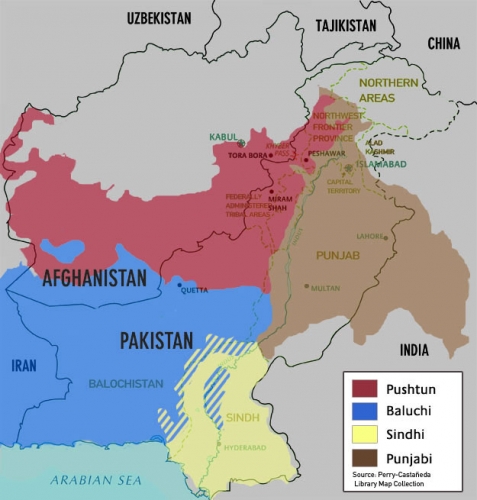
Pakistan, on the contrary, took the position of sovereignty and denied its critics in Washington, so it aroused considerable interest from Russia as an emergent power. This window of opportunity can be favorably used by two parties.
In the current geopolitical situation and in light of the irresponsible behavior of the United States (and their satellites) on the world stage, the implementation of joint Russian-Pakistani projects, including military cooperation, will help strengthen security in Eurasia in the interests of all participants.
Non-Western theories of international relations as sovereign intellectual developments supporting the discourse on multipolarity also will be in great demand in the academic circles of Russia.
In addition, discussions on non-Western approaches to international relations and alternative political theories can not only be a bond for a dialogue of a new quality between Russia and the countries of South Asia, but also lay additional foundations for rethinking regionalism.
Still, South Asia is part of Eurasia, and Russia is interested in strengthening its stability and the predictability of the actions of all its actors.
___
Publishsed in "Conflict and Cooperation in South Asia. Role of Major Powers. Islamabad: IPRI, 2019. P. 153 - 180.
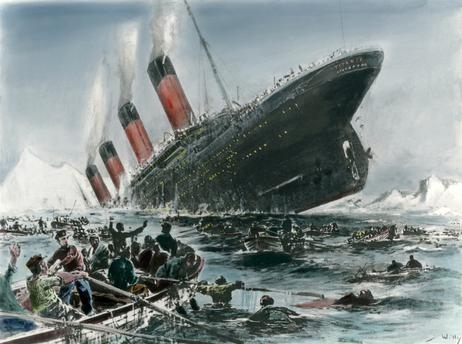
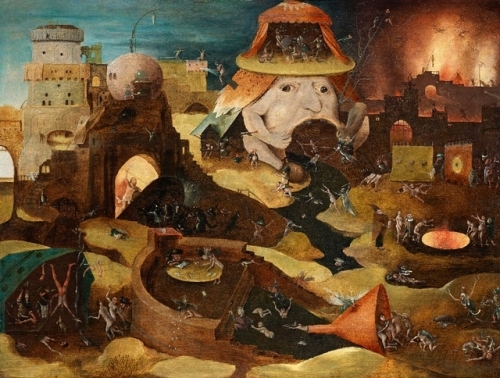




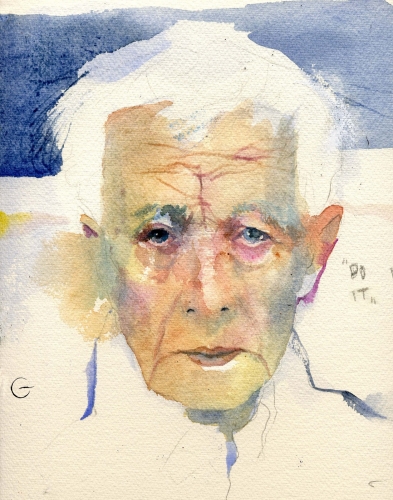

 del.icio.us
del.icio.us
 Digg
Digg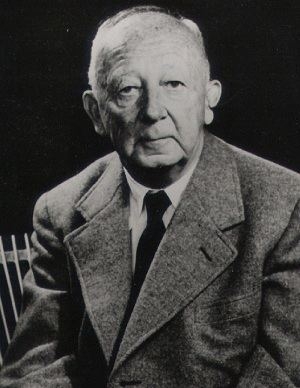
 Der Sohn eines sächsischen Postdirektors erhielt seine Gymnasialausbildung am königlichen Elitegymnasium zu Dresden-Neustadt, studierte von 1907 bis 1911 in Leipzig Philosophie, Psychologie, Nationalökonomie und Geschichte, u.a. bei Wilhelm Wundt und Karl Lamprecht, in deren universalhistorischer Tradition er seine ersten Arbeiten zur Geschichtsauffassung der Aufklärung (Diss. 1911) und zur Bewertung der Wirtschaft in der deutschen Philosophie des 19. Jahrhunderts (Habilitation 1921) verfaßte. Nach zusätzlichen Studien in Berlin mit engen Kontakten zu Georg Simmel und Lehrtätigkeit an der Reformschule der Freien Schulgemeinde Wickersdorf kämpfte F. mit dem Militär-St.-Heinrichs-Orden ausgezeichnet im Ersten Weltkrieg. Als Mitglied des von Eugen Diederichs initiierten Serakreises der Jugendbewegungverfaßte F. an die Aufbruchsgeneration gerichtete philosophischen Schriften: Antäus (1918), Prometheus (1923), Pallas Athene (1935). Von 1922 bis 1925 lehrte er als Ordinarius hauptsächlich Kulturphilosophie an der Universität Kiel, erhielt 1925 den ersten deutschen Lehrstuhl für Soziologie ohne Beiordnung eines anderen Faches in Leipzig und widmete sich von nun an der logischen und historisch-philosophischen Grundlegung dieser neuen Disziplin. In Auseinandersetzung mit dem Positivismus seiner Lehrer und mit der Philosophie Hegels sollten typische gesellschaftliche Grundstrukturen herausgearbeitet und ihre historischen Entwicklungsgesetze gefunden werden. Darüber hinaus ist für F. die Soziologie als konkrete historische Erscheinung, erst durch die abendländische Aufklärung möglich geworden, Äußerung einer vorher nie dagewesenen gesellschaftlichen Emanzipation zur wissenschaftlichen Selbstreflexion, drückt deshalb als "Wirklichkeitswissenschaft" in der Erfassung des gegenwärtigen gesellschaftlichen Wandels auch den kollektiven Willen aus, ist also als Wissenschaft zugleich politische Ethik, die die Richtung des gesellschaftlichen Wandels zu bestimmen hat.
Der Sohn eines sächsischen Postdirektors erhielt seine Gymnasialausbildung am königlichen Elitegymnasium zu Dresden-Neustadt, studierte von 1907 bis 1911 in Leipzig Philosophie, Psychologie, Nationalökonomie und Geschichte, u.a. bei Wilhelm Wundt und Karl Lamprecht, in deren universalhistorischer Tradition er seine ersten Arbeiten zur Geschichtsauffassung der Aufklärung (Diss. 1911) und zur Bewertung der Wirtschaft in der deutschen Philosophie des 19. Jahrhunderts (Habilitation 1921) verfaßte. Nach zusätzlichen Studien in Berlin mit engen Kontakten zu Georg Simmel und Lehrtätigkeit an der Reformschule der Freien Schulgemeinde Wickersdorf kämpfte F. mit dem Militär-St.-Heinrichs-Orden ausgezeichnet im Ersten Weltkrieg. Als Mitglied des von Eugen Diederichs initiierten Serakreises der Jugendbewegungverfaßte F. an die Aufbruchsgeneration gerichtete philosophischen Schriften: Antäus (1918), Prometheus (1923), Pallas Athene (1935). Von 1922 bis 1925 lehrte er als Ordinarius hauptsächlich Kulturphilosophie an der Universität Kiel, erhielt 1925 den ersten deutschen Lehrstuhl für Soziologie ohne Beiordnung eines anderen Faches in Leipzig und widmete sich von nun an der logischen und historisch-philosophischen Grundlegung dieser neuen Disziplin. In Auseinandersetzung mit dem Positivismus seiner Lehrer und mit der Philosophie Hegels sollten typische gesellschaftliche Grundstrukturen herausgearbeitet und ihre historischen Entwicklungsgesetze gefunden werden. Darüber hinaus ist für F. die Soziologie als konkrete historische Erscheinung, erst durch die abendländische Aufklärung möglich geworden, Äußerung einer vorher nie dagewesenen gesellschaftlichen Emanzipation zur wissenschaftlichen Selbstreflexion, drückt deshalb als "Wirklichkeitswissenschaft" in der Erfassung des gegenwärtigen gesellschaftlichen Wandels auch den kollektiven Willen aus, ist also als Wissenschaft zugleich politische Ethik, die die Richtung des gesellschaftlichen Wandels zu bestimmen hat.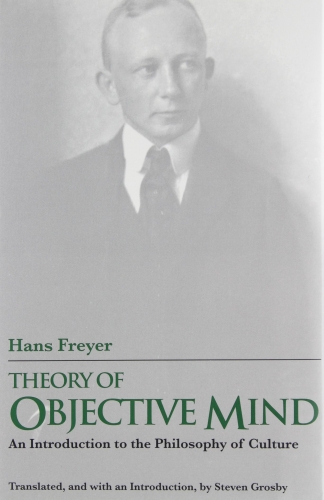 F. war ab 1933 Direktor des Instituts für Kultur- und Universalgeschichte an der Leipziger Universität. Als neu gewählter Präsident der Deutschen Gesellschaft für Soziologie legte er diese 1933 still, um eine politische "Gleichschaltung" zu verhindern. Den damaligen europäischen politischen Umbrüchen brachte F. als Theoretiker des Wandels zunächst offenes Interesse entgegen, fühlte sich der theoretischen Erfassung dieser Entwicklungen verpflichtet und war deshalb nie aktives Mitglied einer politischen Partei oder Bewegung; er wurde später der "konservativen Revolution" der zwanziger Jahre als "jungkonservativer Einzelgänger" (Mohler) zugeordnet. Die vor 1933 noch idealistisch formulierte Konzeption des Staates als höchste Form der Kultur (1925) hat F. im Lauf der bedrohlichen politischen Entwicklung revidiert in seinen Studien über Machiavelli (1936) und Friedrich den Großen (Preußentum und Aufklärung 1944) durch einen realistischen Staatsbegriff, der ausschließlich durch Gemeinwohl, langfristige gesellschaftliche Entwicklungsperspektiven und durch prozessuale Kriterien der Legitimität gerechtfertigt ist: durch den Dienst am Staat, der aber den Menschen keinesfalls total vereinnahmen darf, sowie die Prägekraft des Staates, der dem Kollektiv ein gemeinsames Ziel gibt, aber dennoch die Freiheit und Menschenwürde seiner Bürger bewahrt. Insbesondere gelang F. in der Darstellung der Legitimität als generellem Gesetz jeder Politik eine dialektische Verknüpfung des naturrechtlichen Herrschaftsgedankens mit der klassischen bürgerlich-humanitären Aufklärung: Nur die Herrschaft ist legitim, die dem Sinn ihres Ursprungs entspricht - es muß das erfüllt werden, was das Volk mit der Einsetzung der Herrschaft gewollt hat.
F. war ab 1933 Direktor des Instituts für Kultur- und Universalgeschichte an der Leipziger Universität. Als neu gewählter Präsident der Deutschen Gesellschaft für Soziologie legte er diese 1933 still, um eine politische "Gleichschaltung" zu verhindern. Den damaligen europäischen politischen Umbrüchen brachte F. als Theoretiker des Wandels zunächst offenes Interesse entgegen, fühlte sich der theoretischen Erfassung dieser Entwicklungen verpflichtet und war deshalb nie aktives Mitglied einer politischen Partei oder Bewegung; er wurde später der "konservativen Revolution" der zwanziger Jahre als "jungkonservativer Einzelgänger" (Mohler) zugeordnet. Die vor 1933 noch idealistisch formulierte Konzeption des Staates als höchste Form der Kultur (1925) hat F. im Lauf der bedrohlichen politischen Entwicklung revidiert in seinen Studien über Machiavelli (1936) und Friedrich den Großen (Preußentum und Aufklärung 1944) durch einen realistischen Staatsbegriff, der ausschließlich durch Gemeinwohl, langfristige gesellschaftliche Entwicklungsperspektiven und durch prozessuale Kriterien der Legitimität gerechtfertigt ist: durch den Dienst am Staat, der aber den Menschen keinesfalls total vereinnahmen darf, sowie die Prägekraft des Staates, der dem Kollektiv ein gemeinsames Ziel gibt, aber dennoch die Freiheit und Menschenwürde seiner Bürger bewahrt. Insbesondere gelang F. in der Darstellung der Legitimität als generellem Gesetz jeder Politik eine dialektische Verknüpfung des naturrechtlichen Herrschaftsgedankens mit der klassischen bürgerlich-humanitären Aufklärung: Nur die Herrschaft ist legitim, die dem Sinn ihres Ursprungs entspricht - es muß das erfüllt werden, was das Volk mit der Einsetzung der Herrschaft gewollt hat.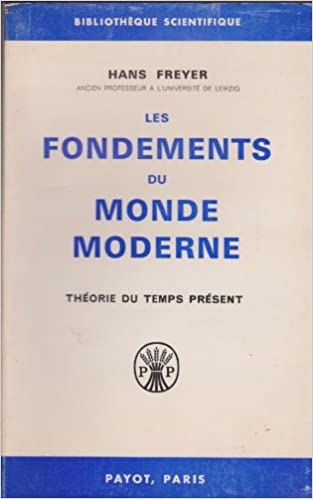 Zentraler Gesichtspunkt seiner Nachkriegsschriften war die gegenwärtige Epochenschwelle, der Übergang der modernen Industriegesellschaft zur weltweit ausgreifenden wissenschaftlich-technischen Rationalität, deren "sekundäre Systeme" alle naturhaft gewachsenen Lebensformen erfassen. F. weist nach, wie diese Fortschrittsordnung zum tragenden Kulturfaktor wird in allen Teilentwicklungen: der Technik, Siedlungsformen, Arbeit und Wertungen. Seine frühere integrative Perspektive einer Kultursynthese wird ersetzt durch den Konflikt von eigengesetzlichen, künstlichen Sachwelten einerseits und den "haltenden Mächte" des sozialen Lebens andererseits, die im "Katarakt des Fortschritts" auf wenige, die private Lebenswelt beherrschende Gemeinschaftsformen beschränkt sind. Jedoch bleibt die Synthese von "Leben" und "Form", von Menschlichkeit und technischer Zivilisation für F. weiterhin unerläßlich für den Fortbestand jeder Kultur, im krisenhaften Übergang noch nicht erreicht, aber durchaus denkbar jenseits der Schwelle, wenn sich die neue geschichtliche Epoche der weltumspannenden Industriekultur konsolidieren wird. F.s Theorie der Industriekultur, kurz vor seinem Tode begonnen, ist unvollendet geblieben. Sein strukturhistorisches Konzept der Epochenschwelle hat in der deutschen Nachkriegssoziologie weniger Aufnahme gefunden, während es in der deutschen Geschichtswissenschaft wesentlich zur Überwindung einer evolutionären Entwicklungsgeschichte beigetragen hat und eine sozialwissenschaftlich orientierte Strukturgeschichtsschreibung einleitete, wofür F.s Konzept der Eigendynamik der sekundären Systeme ebenso ausschlaggebend war.
Zentraler Gesichtspunkt seiner Nachkriegsschriften war die gegenwärtige Epochenschwelle, der Übergang der modernen Industriegesellschaft zur weltweit ausgreifenden wissenschaftlich-technischen Rationalität, deren "sekundäre Systeme" alle naturhaft gewachsenen Lebensformen erfassen. F. weist nach, wie diese Fortschrittsordnung zum tragenden Kulturfaktor wird in allen Teilentwicklungen: der Technik, Siedlungsformen, Arbeit und Wertungen. Seine frühere integrative Perspektive einer Kultursynthese wird ersetzt durch den Konflikt von eigengesetzlichen, künstlichen Sachwelten einerseits und den "haltenden Mächte" des sozialen Lebens andererseits, die im "Katarakt des Fortschritts" auf wenige, die private Lebenswelt beherrschende Gemeinschaftsformen beschränkt sind. Jedoch bleibt die Synthese von "Leben" und "Form", von Menschlichkeit und technischer Zivilisation für F. weiterhin unerläßlich für den Fortbestand jeder Kultur, im krisenhaften Übergang noch nicht erreicht, aber durchaus denkbar jenseits der Schwelle, wenn sich die neue geschichtliche Epoche der weltumspannenden Industriekultur konsolidieren wird. F.s Theorie der Industriekultur, kurz vor seinem Tode begonnen, ist unvollendet geblieben. Sein strukturhistorisches Konzept der Epochenschwelle hat in der deutschen Nachkriegssoziologie weniger Aufnahme gefunden, während es in der deutschen Geschichtswissenschaft wesentlich zur Überwindung einer evolutionären Entwicklungsgeschichte beigetragen hat und eine sozialwissenschaftlich orientierte Strukturgeschichtsschreibung einleitete, wofür F.s Konzept der Eigendynamik der sekundären Systeme ebenso ausschlaggebend war.


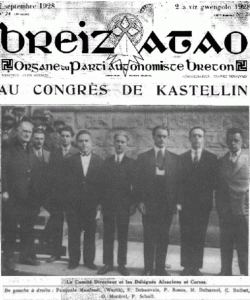 Il anime dans les années trente, un courant de jeunes architectes d’esprit nationaliste (il possède le magasin art déco Ty Kodaks de Quimper) et tente de créer un style breton moderne. En 1932, François Debauvais et Olier Mordrel fondent le PNB 2 (Parti national breton), lequel sera dissous sous le gouvernement Daladier (octobre 1939) en raison de son engagement séparatiste et de ses amitiés avec de hauts dignitaires allemands prompts à affaiblir par tout moyen la France. Olier Mordrel est un des deux dirigeants majeurs de la mouvance autonomiste, mais si François Debauvais s'attache plus à l'organisation, lui accorde plus de temps aux spéculations idéologiques et aux prises de positions politiques notamment par l'intermédiaire du journal autonomiste puis nationaliste "Breiz Atao". Sa sensibilité radicale voire extrémiste qui le pousse vers un romantisme néo-païen et une fascination pour le fascisme reste cependant toujours relativement marginale et il devra créer sa propre revue afin d'exprimer un ensemble d'opinions que "Breiz Atao" ne peut formuler sans risquer de heurter d'autres sensibilités, notamment catholiques.
Il anime dans les années trente, un courant de jeunes architectes d’esprit nationaliste (il possède le magasin art déco Ty Kodaks de Quimper) et tente de créer un style breton moderne. En 1932, François Debauvais et Olier Mordrel fondent le PNB 2 (Parti national breton), lequel sera dissous sous le gouvernement Daladier (octobre 1939) en raison de son engagement séparatiste et de ses amitiés avec de hauts dignitaires allemands prompts à affaiblir par tout moyen la France. Olier Mordrel est un des deux dirigeants majeurs de la mouvance autonomiste, mais si François Debauvais s'attache plus à l'organisation, lui accorde plus de temps aux spéculations idéologiques et aux prises de positions politiques notamment par l'intermédiaire du journal autonomiste puis nationaliste "Breiz Atao". Sa sensibilité radicale voire extrémiste qui le pousse vers un romantisme néo-païen et une fascination pour le fascisme reste cependant toujours relativement marginale et il devra créer sa propre revue afin d'exprimer un ensemble d'opinions que "Breiz Atao" ne peut formuler sans risquer de heurter d'autres sensibilités, notamment catholiques.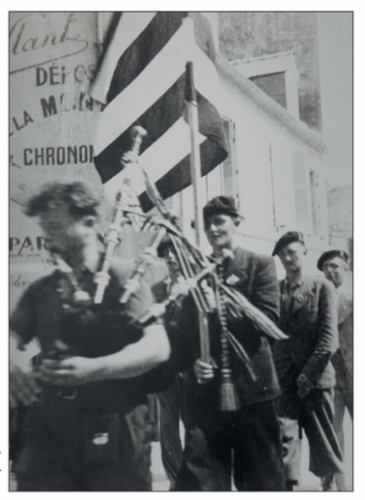 Dans Breiz Atao (n° 164, 11 décembre 1932) il déclare, signant de son pseudonyme J. La B / Jean La Bénelais : Jacobin rime avec Youppin. (...) " Notre Juif " à nous, en Bretagne, c’est donc surtout le théoricien de l’Une et Indivisible, avant que Breiz Atao ne reprenne la swastika, symbole utilisé également par les nazis, le 29 janvier 1933. Le 14 décembre 1938, Mordrel est condamné, avec François Debauvais, à un an de prison avec sursis pour « atteinte à l'unité de la nation ». De juillet 1938 à juillet 1939, il est secrétaire général et rédacteur de Breiz Atao. Avant la déclaration de la guerre entre la France et l'Allemagne, et afin s'échapper à une arrestation imminente, il part en Allemagne nazie avec sa femme, François Debauvais et Anna Debauvais qui décrit leur voyage (Mémoires du chef breton : Fransez Debauvais, tome 3, p. 29-38). Depuis la Belgique, il rejoint Berlin. Publiés depuis Amsterdam, Mordrel et Debauvais adressent un manifeste aux Bretons, condamnant la guerre entreprise par la France le 25 octobre 1939.
Dans Breiz Atao (n° 164, 11 décembre 1932) il déclare, signant de son pseudonyme J. La B / Jean La Bénelais : Jacobin rime avec Youppin. (...) " Notre Juif " à nous, en Bretagne, c’est donc surtout le théoricien de l’Une et Indivisible, avant que Breiz Atao ne reprenne la swastika, symbole utilisé également par les nazis, le 29 janvier 1933. Le 14 décembre 1938, Mordrel est condamné, avec François Debauvais, à un an de prison avec sursis pour « atteinte à l'unité de la nation ». De juillet 1938 à juillet 1939, il est secrétaire général et rédacteur de Breiz Atao. Avant la déclaration de la guerre entre la France et l'Allemagne, et afin s'échapper à une arrestation imminente, il part en Allemagne nazie avec sa femme, François Debauvais et Anna Debauvais qui décrit leur voyage (Mémoires du chef breton : Fransez Debauvais, tome 3, p. 29-38). Depuis la Belgique, il rejoint Berlin. Publiés depuis Amsterdam, Mordrel et Debauvais adressent un manifeste aux Bretons, condamnant la guerre entreprise par la France le 25 octobre 1939.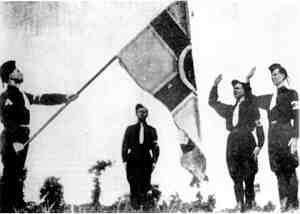 Sa ligne politique irrite Vichy et ne correspond plus aux besoins de Berlin, qui s’appuie désormais sur Vichy et constate l’isolement relatif du PNB dans la population; cet état de fait sera à l'origine de "la révolution de palais" du parti de décembre 1940. Qui plus est, Raymond Delaporte appuyé de Célestin Lainé, lequel ambitionne depuis longtemps de remplacer Olier Mordrel, profite du désir allemand d'étouffer l'autonomisme breton rendu inutile pour l'écarter de la direction alors qu'il lance une réorganisation du parti visant à le rendre totalement indépendant des Allemands et hostile à Vichy. La doctrine du PNB perdra en rigueur et en ardeur pour nourrir un séparatisme convenu. En novembre 1940, il affirme : "Notre force est en nous. elle n'est ni dans les autres ni dans les circonstances. ce n'est ni Vichy ni Berlin qui rendront au peuple breton la force de caractère nécessaire pour s'affranchir, se regrouper et se frayer une route. Notre sort se joue dans nos fibres... N'attendons rien que de nous. Alors, nous passerons au travers du gros temps, si gros temps il y a, comme une bonne étrave, et nos enfants seront Bretons".
Sa ligne politique irrite Vichy et ne correspond plus aux besoins de Berlin, qui s’appuie désormais sur Vichy et constate l’isolement relatif du PNB dans la population; cet état de fait sera à l'origine de "la révolution de palais" du parti de décembre 1940. Qui plus est, Raymond Delaporte appuyé de Célestin Lainé, lequel ambitionne depuis longtemps de remplacer Olier Mordrel, profite du désir allemand d'étouffer l'autonomisme breton rendu inutile pour l'écarter de la direction alors qu'il lance une réorganisation du parti visant à le rendre totalement indépendant des Allemands et hostile à Vichy. La doctrine du PNB perdra en rigueur et en ardeur pour nourrir un séparatisme convenu. En novembre 1940, il affirme : "Notre force est en nous. elle n'est ni dans les autres ni dans les circonstances. ce n'est ni Vichy ni Berlin qui rendront au peuple breton la force de caractère nécessaire pour s'affranchir, se regrouper et se frayer une route. Notre sort se joue dans nos fibres... N'attendons rien que de nous. Alors, nous passerons au travers du gros temps, si gros temps il y a, comme une bonne étrave, et nos enfants seront Bretons". Il part d'abord pour le Brésil, puis l'Argentine, avant de trouver refuge en Espagne. Il est condamné à mort par contumace à la Libération, en juin 1946. Il écrit dans la revue Ar Vro, sous le pseudonyme de Brython. Il revient en France, en 1972, collabore à La Bretagne réelle, sous le pseudonyme d'Otto Mohr (son pseudonyme de 1940) et édite divers livres, dont Waffen SS d'Occident. Il a co-fondé dans les années 1980 un cercle nationaliste, le Kelc'h Maksen Wledig (Du nom de l'Empereur Maxime, "descendu" de Bretagne insulaire en compagnie de Conan Meriadec, le premier roi de Bretagne ), avec, entre autres, Yann-Ber Tillenon, et qui se place dans la continuité de l'extrême-droite bretonne ; et Georges Pinault, alias Goulven Pennaod. En 1981, il soutient François Mitterrand, tout en étant attentif aux travaux du GRECE, cercle de réflexion animé par Alain de Benoist, considéré comme proche de l'extrême-droite. Il meurt en 1985. (Voir Camus et Monzat, Les Droites nationales et radicales en France, Presses universitaires de Lyon, 1992).
Il part d'abord pour le Brésil, puis l'Argentine, avant de trouver refuge en Espagne. Il est condamné à mort par contumace à la Libération, en juin 1946. Il écrit dans la revue Ar Vro, sous le pseudonyme de Brython. Il revient en France, en 1972, collabore à La Bretagne réelle, sous le pseudonyme d'Otto Mohr (son pseudonyme de 1940) et édite divers livres, dont Waffen SS d'Occident. Il a co-fondé dans les années 1980 un cercle nationaliste, le Kelc'h Maksen Wledig (Du nom de l'Empereur Maxime, "descendu" de Bretagne insulaire en compagnie de Conan Meriadec, le premier roi de Bretagne ), avec, entre autres, Yann-Ber Tillenon, et qui se place dans la continuité de l'extrême-droite bretonne ; et Georges Pinault, alias Goulven Pennaod. En 1981, il soutient François Mitterrand, tout en étant attentif aux travaux du GRECE, cercle de réflexion animé par Alain de Benoist, considéré comme proche de l'extrême-droite. Il meurt en 1985. (Voir Camus et Monzat, Les Droites nationales et radicales en France, Presses universitaires de Lyon, 1992). Le portrait des relations entre Mordrel et Debeauvais laissant entrevoir des rapports de plus en plus exécrables à mesure que la possibilité de réaliser l'indépendance avec l'aide allemande se concrétise. Reste que Olier Mordrel explique dans le détail son parcours et fournit son propre point de vue sur son engagement. Olier Mordrel cependant se garde d'expliquer les raisons plus intimes de ses sympathies pour l'idéologie nationale socialiste. Il avance au demeurant des motivations comme l'opportunisme, les circonstances exceptionnelles, une certaine communauté d'esprit. Il prend soin de démarquer la démarche du PNB de celle des fascismes par une sensibilité bretonne originale éloignée des stato-nationalismes allemand et italien et rejette l'idée d'une "copie bretonne" de modèles étrangers.
Le portrait des relations entre Mordrel et Debeauvais laissant entrevoir des rapports de plus en plus exécrables à mesure que la possibilité de réaliser l'indépendance avec l'aide allemande se concrétise. Reste que Olier Mordrel explique dans le détail son parcours et fournit son propre point de vue sur son engagement. Olier Mordrel cependant se garde d'expliquer les raisons plus intimes de ses sympathies pour l'idéologie nationale socialiste. Il avance au demeurant des motivations comme l'opportunisme, les circonstances exceptionnelles, une certaine communauté d'esprit. Il prend soin de démarquer la démarche du PNB de celle des fascismes par une sensibilité bretonne originale éloignée des stato-nationalismes allemand et italien et rejette l'idée d'une "copie bretonne" de modèles étrangers. En 2005, Adsav organisera une cérémonie sur la tombe de Mordrel pour les 20 ans de sa disparition. Plus généralement on peut dire qu'avec Adsav, les conceptions mordrelliennes du nationalisme breton que l'on trouvait déjà dans Breiz Atao à l'état embryonnaire, sont devenues les éléments constitutifs d'un nouveau courant à part entière de l'Emsav. Un courant d'extrême droite ou très proche de l'extrême droite mais doté d'une perspective propre et différente de l'extrême droite française. Une réalité qu'a dénoncé Mona Bras, porte parole de l'UDB suite à une interview du président d'Adsav ou ce dernier souligne les apports d'Olier Mordrel au nationalisme breton. La porte parole y dénonçait la dérive "mordrellienne" d'une frange de l'Emsav.
En 2005, Adsav organisera une cérémonie sur la tombe de Mordrel pour les 20 ans de sa disparition. Plus généralement on peut dire qu'avec Adsav, les conceptions mordrelliennes du nationalisme breton que l'on trouvait déjà dans Breiz Atao à l'état embryonnaire, sont devenues les éléments constitutifs d'un nouveau courant à part entière de l'Emsav. Un courant d'extrême droite ou très proche de l'extrême droite mais doté d'une perspective propre et différente de l'extrême droite française. Une réalité qu'a dénoncé Mona Bras, porte parole de l'UDB suite à une interview du président d'Adsav ou ce dernier souligne les apports d'Olier Mordrel au nationalisme breton. La porte parole y dénonçait la dérive "mordrellienne" d'une frange de l'Emsav.
 Agnes Buzin, médecin et alors ministre des Solidarités et de la Santé, avait alors voulu « rassurer », sans doute à la demande d'Emmanuel Macron, en affirmant que le pays avait les moyens de combattre l'infection. . Elle a envoyé la totalité des masques chirurgicaux disponibles aux Chinois qui ne les avaient pas demandés créant une pénurie nationale. Les commandes de nouveaux masques, qu'aucune entreprise française n'apparait capable de fabriquer, ne seront livrées qu'à la mi-avril.
Agnes Buzin, médecin et alors ministre des Solidarités et de la Santé, avait alors voulu « rassurer », sans doute à la demande d'Emmanuel Macron, en affirmant que le pays avait les moyens de combattre l'infection. . Elle a envoyé la totalité des masques chirurgicaux disponibles aux Chinois qui ne les avaient pas demandés créant une pénurie nationale. Les commandes de nouveaux masques, qu'aucune entreprise française n'apparait capable de fabriquer, ne seront livrées qu'à la mi-avril. 
 La parution de L'Ere du vide, en 1983, fit grand bruit. Gilles Lipovetsky apparaissait comme un observateur de la société postmoderne, celle qui voyait simultanément l'écroulement des grandes idéologies et le développement de l'individualisme. Ce livre marquait l'entrée en scène tonitruante d'un « Narcisse cool et affranchi ».
La parution de L'Ere du vide, en 1983, fit grand bruit. Gilles Lipovetsky apparaissait comme un observateur de la société postmoderne, celle qui voyait simultanément l'écroulement des grandes idéologies et le développement de l'individualisme. Ce livre marquait l'entrée en scène tonitruante d'un « Narcisse cool et affranchi ».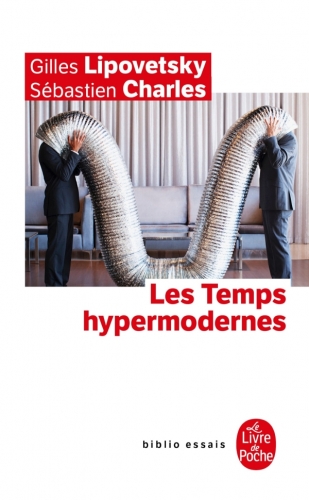 L’existence dans l’hypermodernité expose un versant refoulé dans excès et une dualité, où la frivolité masque une profonde anxiété existentielle collective. De là naît un rapport crispé sur le présent, lequel triomphe dans le règne de l'émotivité angoissée. L'effondrement des traditions est alors vécu sur le mode de l'inquiétude et non sur la conquête de libertés individuelles et collectives. L'hypermodernité, pour Lipovetsky, tient également lieu de chance à saisir, celle d'une responsabilisation renouvelée du sujet.
L’existence dans l’hypermodernité expose un versant refoulé dans excès et une dualité, où la frivolité masque une profonde anxiété existentielle collective. De là naît un rapport crispé sur le présent, lequel triomphe dans le règne de l'émotivité angoissée. L'effondrement des traditions est alors vécu sur le mode de l'inquiétude et non sur la conquête de libertés individuelles et collectives. L'hypermodernité, pour Lipovetsky, tient également lieu de chance à saisir, celle d'une responsabilisation renouvelée du sujet.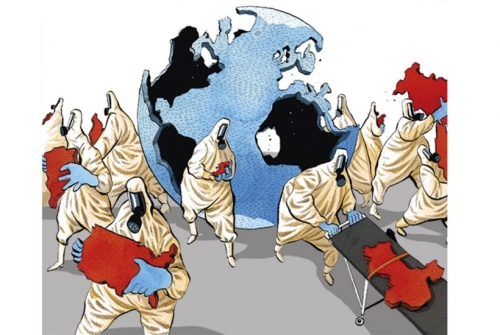


 La Chine accuse les États-Unis ! Nous avions déjà la crise sanitaire et la crise économique, voici peut-être une nouvelle crise diplomatique majeure puisqu’un porte-parole du ministère chinois des Affaires étrangères suggère que l’épidémie n’est pas nécessairement accidentelle…et qu’elle provient d’Amérique !
La Chine accuse les États-Unis ! Nous avions déjà la crise sanitaire et la crise économique, voici peut-être une nouvelle crise diplomatique majeure puisqu’un porte-parole du ministère chinois des Affaires étrangères suggère que l’épidémie n’est pas nécessairement accidentelle…et qu’elle provient d’Amérique !









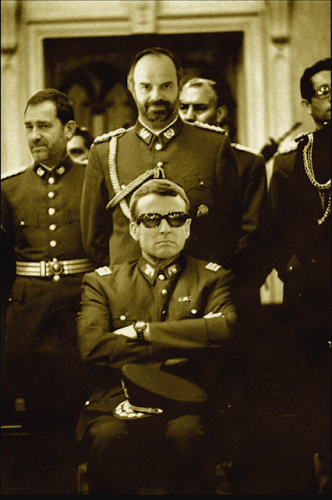






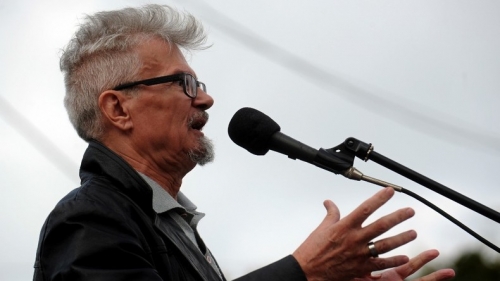
 D'une poignée de main ferme, il accueillait les visiteurs sans manières dans son appartement de 100 mètres carrés à la déco minimaliste: quelques chaises, un bureau en formica, un fauteuil en skaï et, sur les murs gris, trois ou quatre photos où l'on reconnaissait le maître des lieux, pour la plupart des clichés pris à Paris, dans le Marais, où il avait vécu au début des années 1980, et devant Notre-Dame.
D'une poignée de main ferme, il accueillait les visiteurs sans manières dans son appartement de 100 mètres carrés à la déco minimaliste: quelques chaises, un bureau en formica, un fauteuil en skaï et, sur les murs gris, trois ou quatre photos où l'on reconnaissait le maître des lieux, pour la plupart des clichés pris à Paris, dans le Marais, où il avait vécu au début des années 1980, et devant Notre-Dame. 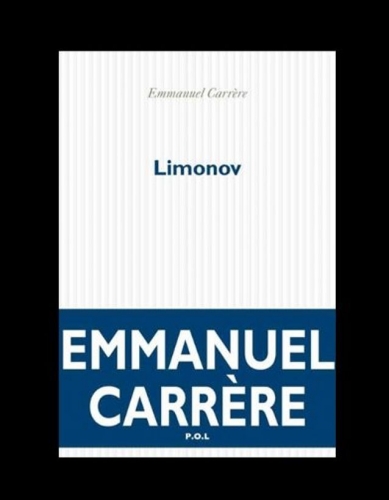 Cette manière de parler peut être déstabilisante. Elle est aussi rafraîchissante. Car, au moins les propos de Limonov procédaient-ils d'une pensée réellement personnelle, hors sol et hors cadre, qui a le mérite d'interroger les certitudes. Tout en l'écoutant énoncer ses vérités dégoupillées, il fallait toujours se demander si elles étaient à prendre au second ou au troisième degré. Tout bien réfléchi, c'était au premier.
Cette manière de parler peut être déstabilisante. Elle est aussi rafraîchissante. Car, au moins les propos de Limonov procédaient-ils d'une pensée réellement personnelle, hors sol et hors cadre, qui a le mérite d'interroger les certitudes. Tout en l'écoutant énoncer ses vérités dégoupillées, il fallait toujours se demander si elles étaient à prendre au second ou au troisième degré. Tout bien réfléchi, c'était au premier. 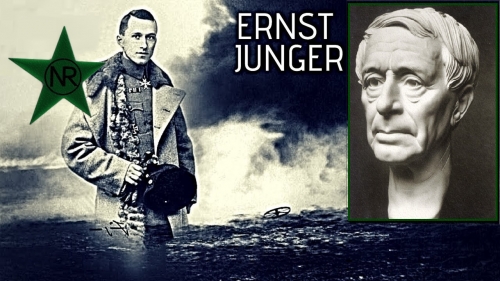



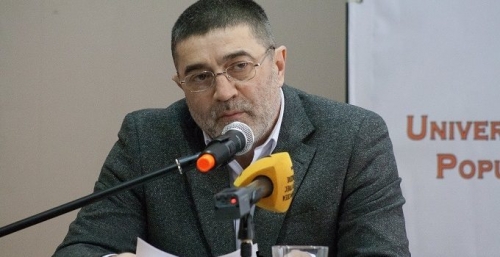
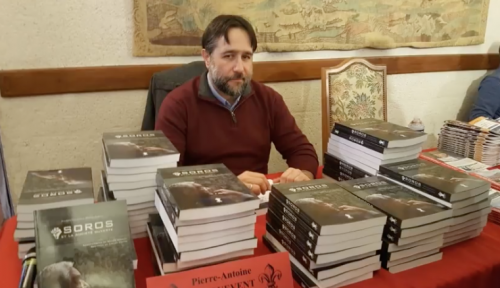
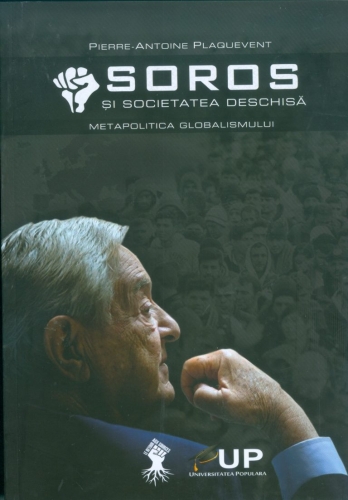 Signalons au passage – car cela n’a rien d’un hasard – que des membres de ces deux générations de la dissidence française figurent aussi parmi les voix les plus écoutées parmi celles que rassemble à intervalles plus ou moins réguliers le Forum de Chișinău, une plateformeinternationale de discussion dont la visibilité augmente d’année en année dans divers pays du monde. C’est ainsi que l’exposé présenté par Pierre-Antoine Plaquevent, par exemple, dans le cadre de la session du 21 septembre 2019 était intitulé« Multipolarité et société ouverte : réalisme géopolitique versus utopie cosmopolite. Pluriversum vs universum » – un texte de référence, qu’on gagnera à étudier attentivement (https://flux.md/stiri/chisinau-forum-iii-pierre-antoine-plaquevent-discurs-video).
Signalons au passage – car cela n’a rien d’un hasard – que des membres de ces deux générations de la dissidence française figurent aussi parmi les voix les plus écoutées parmi celles que rassemble à intervalles plus ou moins réguliers le Forum de Chișinău, une plateformeinternationale de discussion dont la visibilité augmente d’année en année dans divers pays du monde. C’est ainsi que l’exposé présenté par Pierre-Antoine Plaquevent, par exemple, dans le cadre de la session du 21 septembre 2019 était intitulé« Multipolarité et société ouverte : réalisme géopolitique versus utopie cosmopolite. Pluriversum vs universum » – un texte de référence, qu’on gagnera à étudier attentivement (https://flux.md/stiri/chisinau-forum-iii-pierre-antoine-plaquevent-discurs-video).
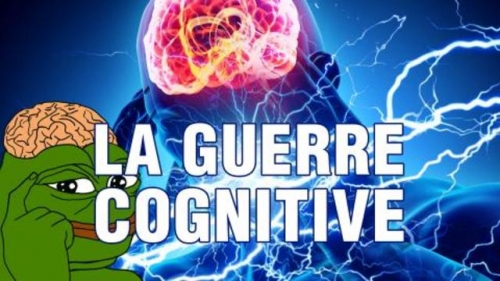


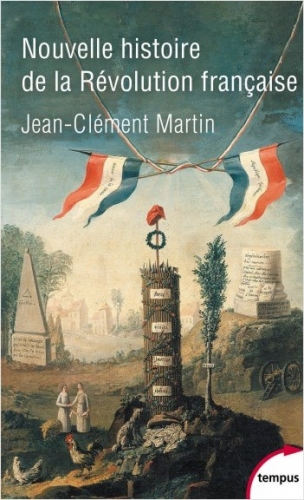 Les raisons de ce relatif abandon intellectuel sont multiples : mondialisme, faiblesses intellectuelles et historiques chez la grande majorité du personnel politique et l’inventaire de la Révolution est de plus en plus connu… Cela étant, un homme situé à l’extrême gauche de l’échiquier politique républicain n’a pas hésité, tout récemment, à commettre une œuvre dans laquelle il assume se reconnaître dans l’héritage jacobin.(1)
Les raisons de ce relatif abandon intellectuel sont multiples : mondialisme, faiblesses intellectuelles et historiques chez la grande majorité du personnel politique et l’inventaire de la Révolution est de plus en plus connu… Cela étant, un homme situé à l’extrême gauche de l’échiquier politique républicain n’a pas hésité, tout récemment, à commettre une œuvre dans laquelle il assume se reconnaître dans l’héritage jacobin.(1)


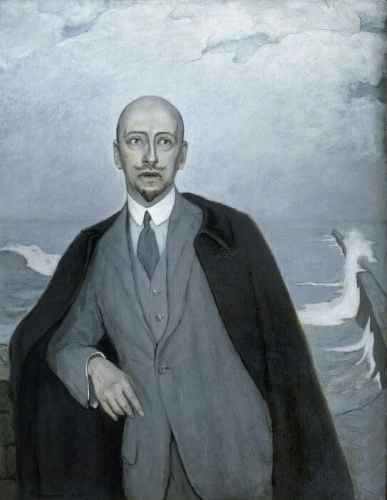
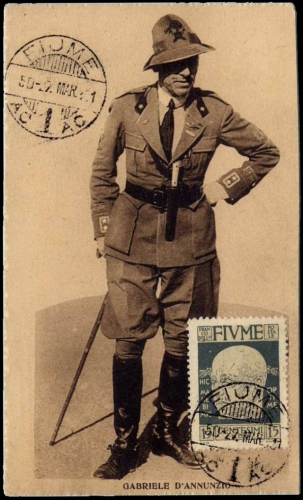

 In her 2013 biography of d’Annunzio,
In her 2013 biography of d’Annunzio, 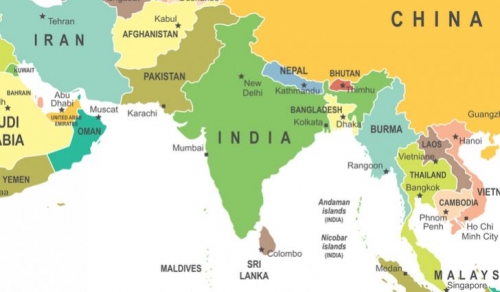
 If the US had once followed the doctrine of Henry Kissinger's rollback and used the myth of the Communist threat, now Washington has a more difficult time justifying its presence in the region. In addition, Russia is separated from these countries by a buffer of the independent states of Central Asia. Although the political reality has changed, the geopolitical logic remains the same.
If the US had once followed the doctrine of Henry Kissinger's rollback and used the myth of the Communist threat, now Washington has a more difficult time justifying its presence in the region. In addition, Russia is separated from these countries by a buffer of the independent states of Central Asia. Although the political reality has changed, the geopolitical logic remains the same.




 Thus, the situation with regard to Ukraine and Russia's actions on the one hand, and the West on the other, describes well John J. Mearsheimer opinion, who pointed to the guilt of the West in the Ukrainian crisis.
Thus, the situation with regard to Ukraine and Russia's actions on the one hand, and the West on the other, describes well John J. Mearsheimer opinion, who pointed to the guilt of the West in the Ukrainian crisis.


